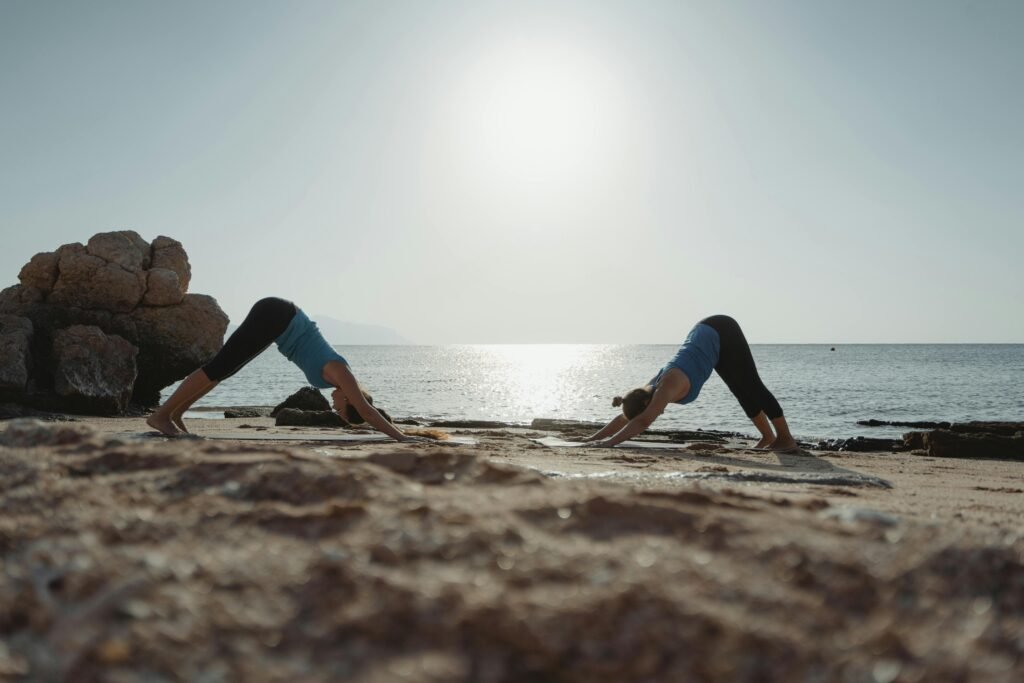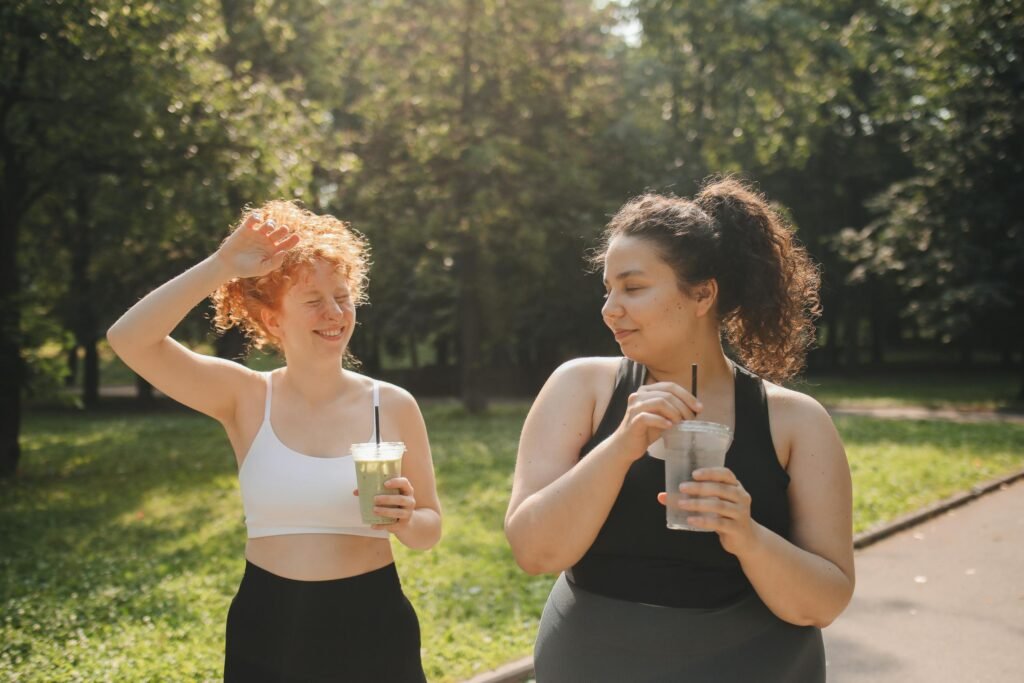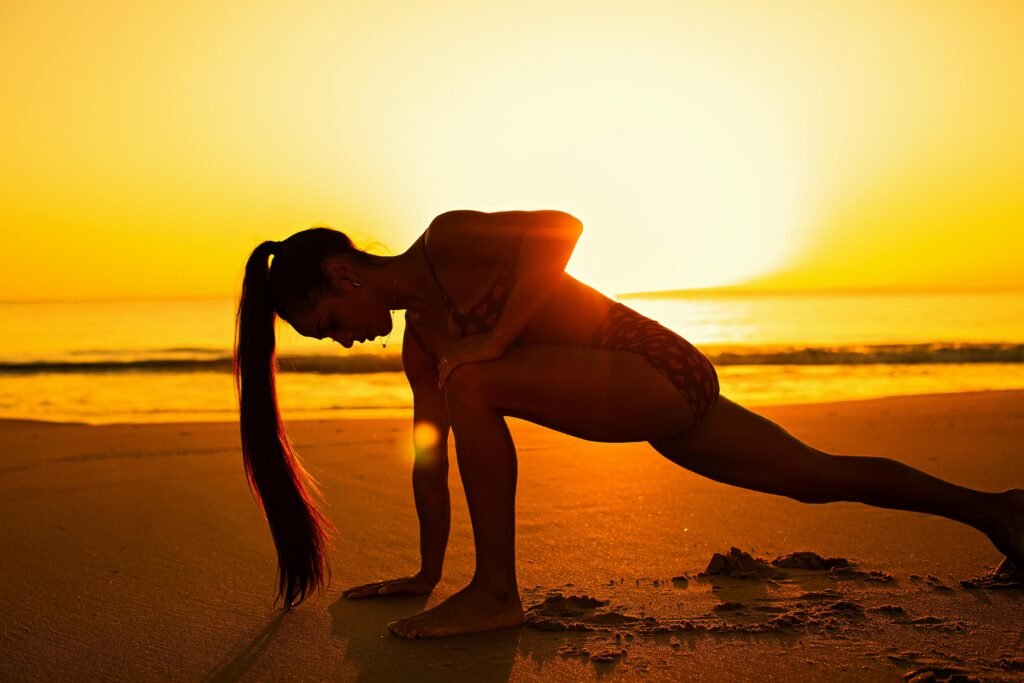You’ve probably overheard your beloved Peloton instructor say: ‘The best time to work out is whenever you’ll actually do it’ and they are not wrong. Would you really benefit setting an alarm at 5 a.m. if you’re just going to hit snooze? Or setting a class for after dinner when you know you’re usually wiped out from work and family responsibilities?
But how do you really find out the most optimal workout time for you? Does it differ on whether you need to work on running, building strength, or shedding pounds? And what about your natural body clock? Are morning people better predisposed to favorable results than night owls?
Surprisingly enough, the timing of a workout can remarkably affect one’s endurance, muscle gains, fat loss, and performance. To help you unlock your personalized fitness schedule, we turned to science, and the experts. Here’s how to figure the best time to exercise with regards to your body, objectives and way of life.
Your Body Has a Clock and It Matters

Our bodies run on a circadian rhythm a 24-hour internal clock that influences everything from sleep cycles to hormone release to metabolism. This rhythm plays a key role in physical performance and how our bodies respond to exercise. If you move at any time of the day, it counts towards your health and well-being, which is what matters the most. Although there is no wrong time to exercise, some hours of the day may present unique benefits based on your objectives and plans. So, what is the time that suits you best for a workout ? We have separated it according to each fitness goal and believe us, these tips could very much elevate your fitness regime.
Morning Workouts: The Early Bird Gets the Burn

Rise and shine! If any of your objectives are shedding some pounds, decreasing visceral fat, and improving general health, then morning workouts may work wonders for you, especially for women, according to Dr. Camile’s research. So sees the clock indicates it’s time to wake up, and you feel like rolling over, just keep in mind that getting up and moving could actually help make a difference.
Pros of Morning Workouts:
- Better consistency: Fewer distractions mean you’re more likely to stick to a morning routine.
- Fat burn: Studies suggest fasted morning workouts (before breakfast) may help the body tap into fat stores.
- Mental boost: Exercise increases endorphins and dopamine, giving you a sharper, more positive mindset to start your day.
Science says: Morning exercisers often see long-term weight loss benefits and are more likely to stick with their fitness programs. However, strength and flexibility may be slightly lower compared to later in the day
Afternoon Workouts: A Sweet Spot for Performance

Research has found that your body hits peak performance between 1 p.m. and 5 p.m. This is when your body temperature is at its highest, which can positively impact muscle function and strength.
Pros of Afternoon Workouts:
- Higher strength and power: Studies show people can lift heavier and run faster in the afternoon.
- Improved reaction time: Great for skill-based or competitive sports.
- Reduced injury risk: Warmer muscles mean lower chances of strain or sprain.
Science says: If your goal is peak physical performance—whether it’s lifting heavier or running faster—mid to late afternoon is the golden window
Evening Workouts: A Surprising Powerhouse

Evening workouts often get a bad rap, especially for those who worry it might interfere with sleep. But recent studies suggest that’s not necessarily true.
Pros of Evening Workouts:
- Stress relief: After a long day, exercise can be a healthy way to decompress.
- Strength and endurance peak: Similar to afternoon benefits, you might find you can push harder and go longer.
- Sleep quality may improve: As long as it’s not too close to bedtime, evening exercise can help deepen sleep.
Science says: Evening workouts can boost strength and stamina, and may even help with blood sugar regulation. Just be mindful of timing—avoid intense exercise within an hour of going to bed.
So, What’s the Verdict?
There’s no one-size-fits-all answer. The “best” time to work out depends on your goals, lifestyle, and how your body feels at different times of day.
Here’s a quick breakdown:
| Goal | Best Time to Work Out |
|---|---|
| Fat loss / Habit building | Morning |
| Performance / Strength | Afternoon or Evening |
| Stress relief / Flexibility | Evening |
| Consistency | Anytime you can stick with |
The Takeaway
Just like everyone has different personal interests, everyone has different personal fitness goals, too, and picking out a workout time might help in achieving all the goals faster and effectively. While milestones such as losing fat or gaining strength may require specific time frames, the most crucial thing is that the workouts are consistent. Regular exercises, which ought to be conducted most days of the week, are a surefire way to get results.
Dr. Cuman states: “For a large part of the population, best time to exercise is simply the time they can stick to long-term.” From a timing perspective, there is no wrong time to work out. No matter what time exercises are performed at, it positively impacts nearly every organ and system in the body. The point that needs to be focused on is finding a suitable time and sticking to it.
Fitness coach Calla recommends a great tip if the day is too busy: use the high energy times of day to focus on the most important parts of your workout. “If you are more likely to skip your run at night, schedule it in the morning and lift later or vice versa. The goal is to make your training work within your routine”.
The most beneficial part? You don’t need to exercise at a particular time every day. Even further research shows that while our bodies may respond to exercise differently depending on time and circadian rhythm, there is no universal “perfect” time for everyone. You have options–you can try to fit a brief session during lunch on weekdays and enjoy longer workouts in the mornings over the weekends.
At the end of the day, the best time to work out is the time that helps you stay consistent and motivated. Whether it’s dawn, dusk, or somewhere in between, what matters most is that you’re showing up and moving your body.
